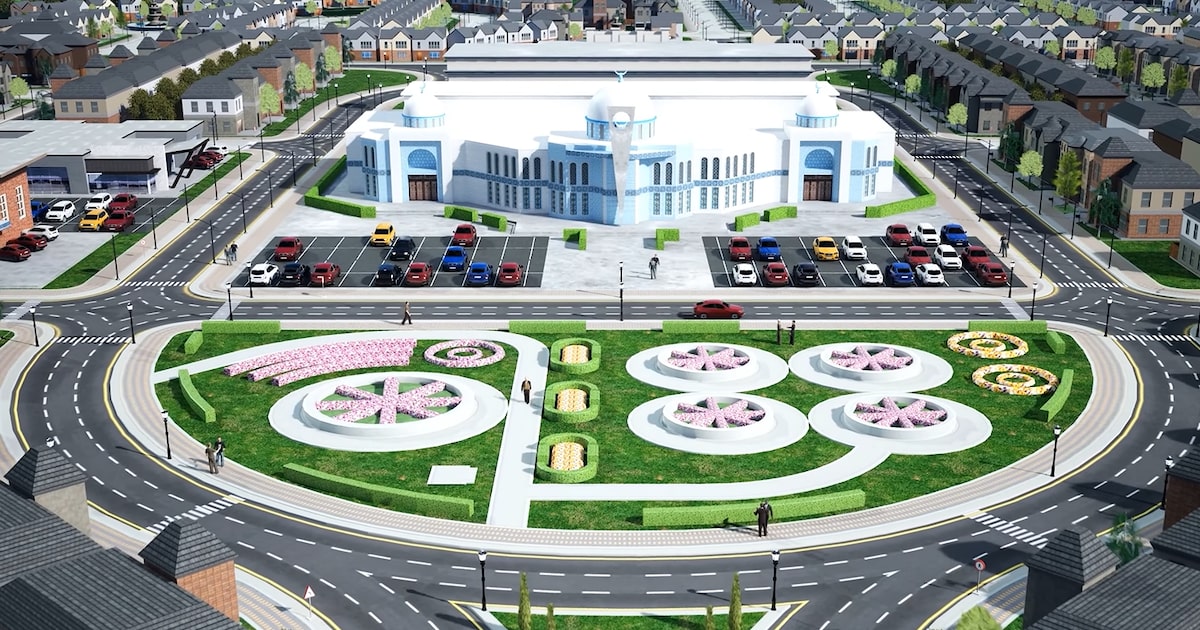But Bible community is OK?
Re: “Lawmakers cheer ban of ‘Sharia cities’ — Abbott’s ceremonial bill-signing targets EPIC City development,” Sept. 13 news story.
Roughly 100 miles north of where Gov. Greg Abbott signed into law a ban on Shariah communities — a piece of legislation directly aimed at EPIC City, a Muslim-centric community — sits Homestead Heritage. Below is an extract from this community’s website:
“Welcome to Homestead Heritage! Homestead Heritage is a Bible-centric community.”
So communities oriented around the Christian Bible are OK, but those centered around the Muslim culture and (presumably) the Quran are not? Here’s some additional text to consider, this time from the First Amendment of our Constitution:
Opinion
“Congress shall make no law respecting an establishment of religion, or prohibiting the free exercise thereof.”
From what I’ve read about both communities, visitors are welcome at Homestead Heritage, but only those who live by the Bible can live there. Meanwhile, the developers of EPIC City have said all will be welcome to visit both the community’s shops and to live there.
How is this OK? I hope EPIC City developers challenge this law in court, up to and including the Supreme Court, if necessary. This will give us another opportunity to see how much the Constitution means to the Supreme Court.
Duane Laurent, Argyle
Permian power plan worrisome
I am deeply concerned about ERCOT’s proposed $33 billion-plus Permian Basin Reliability Plan. These costs will ultimately fall on Texas electric customers.
When legislators passed House Bill 5066 in 2023, did they realize it gave the Electric Reliability Council of Texas and the Public Utility Commission of Texas unchecked authority to approve this plan with no chance for review once complete?
From my review, ERCOT and major transmission providers now have near-total control. At more than $33 billion, this project deserves far more scrutiny.
Key issues:
- The plan began to move electric power to the Permian Basin, not to improve service for populated areas.
- The policy push came from a now-outdated federal initiative to electrify the Permian.
- Localized generation and microgrids could meet regional needs more effectively.
- The $12 billion Competitive Renewable Energy Zones lines didn’t prevent the 2021 blackouts.
- Data centers driving much of this demand should fund their own generation and transmission.
- No provisions address electromagnetic pulse or geomagnetic disturbance protection.
- Rural landowners lose use of land and face legal costs while seeing no benefit.
Texans need a reliable, affordable grid — not an unchecked $33 billion-plus buildout serving special interests. I urge readers to ask legislators to re-examine ERCOT’s plan.
Joanna Friebele, Erath County
Cuts affect food safety
Shore up and buckle up Texas (and the other 49). The decimation of science has been covered by The Dallas Morning News several times in the last months. I have repeatedly written U.S. Sens. John Cornyn and Ted Cruz and Rep. Brandon Gill. The few responses I have received have had nothing to do with the content sent.
The recent firing and subsequent departures at the Centers for Disease Control and Prevention were preceded by a reduction of surveillance of foodborne pathogens on July 1 for all but two foodborne pathogens. .
Per the CDC’s website, the pathogens that are most likely to contribute to illnesses, hospitalization and deaths are:
Illnesses: norovirus, campylobacter, salmonella, C. perfringens, and STEC (Shiga Toxin Escherichia Coli). Hospitalizations: norovirus, campylobacter, salmonella, STEC and listeria. Deaths: salmonella, campylobacter, norovirus, listeria, and STEC
The cutback on surveillance to only two of these (salmonella and STEC) leaves the population vulnerable to much larger outbreaks such as what has happened in the last 18 months with the recalls on Listeria.
Sharon Beals, Corinth
City services require money
Re: “Don’t Add Costs to Dallas’ Budget — Lower tax rates across Texas is proof mission creep must stop at City Hall,” Sept. 10 editorial.
The city of Dallas budget does not fund any department other than police and fire enough, and lowering the tax rate is misguided.
Lowering the tax rate is not the purpose of a city government; ensuring a good quality of life for residents is. During its budget workshops, the city conducted a poll on whether residents preferred 1. the same tax rate and level of services, 2. lower taxes and reduced services, and 3. higher taxes and increased services. The highest percentage chose No. 1. Staffers cited this stat at the District 1 town hall I attended.
Apparently, the editorial board is engaging in magical thinking about the city’s coffers. It seems to believe that the city can dedicate 50% of new revenue to public safety as per Proposition U (a mandate we will never meet) while animal services, parks and libraries struggle for crumbs, and somehow still cut taxes. You need money to provide services. The math doesn’t add up.
Lastly, a special shoutout to council member William Roth, who cannot conceive of the idea of funding something that does not have an immediate payoff tomorrow. Who cares about preventing traffic fatalities or making Dallas climate resilient, anyway?
Brinda Gurumoorthy, Dallas/North Oak Cliff
